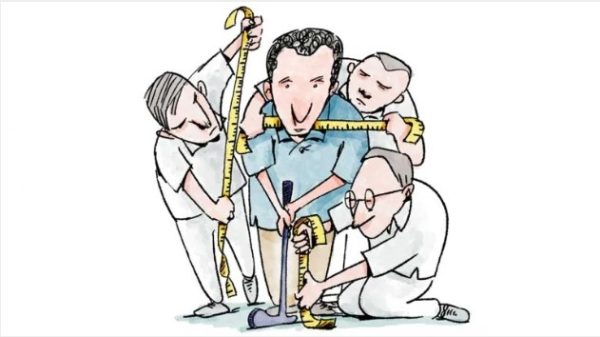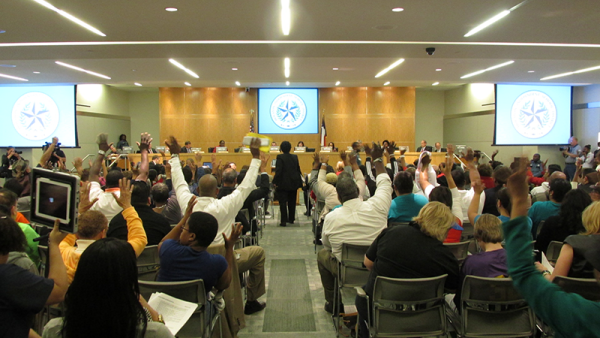A Taste of the Real World- Praktikum
U.S. Schools Should Consider The German Model of Two-Week Internship During the School Year
The German Parliament Building The Reichstag- Site of My Internship in Berlin
EDITOR’S NOTE: Follow CVHS sophomore Leo Bader in an ongoing column series as he spends this year as an exchange student navigating the differences between the lives of youth in Berlin and Houston.
Today starts like any other weekday morning. I eat, get dressed, brush my teeth, and then grab my backpack and go. I bike south, towards my school. But today, I go right past it, heading into
the heart of Berlin.
I’m going towards the Reichstag—the German equivalent of the US Capitol Building–to work in what is called a Praktikum, which can be loosely translated as an internship. For two weeks, I’ll be spending my time working in the offices of Das Parlament, the capitol’s internally produced newspaper, experiencing what it is like to be a part of the working world.

The Site of My Lunchtime at My Praktikum (Photo: Leo Bader/ Upstream)
A Praktikum is something that every Berlin student does. At some point between 9th and 11th grade, students stop school for two to three weeks to explore their interests, discover new things, and see what it is like to work full-time at a real job. Students work in all kinds of places: political parties, media outlets, art studios, veterinarian offices, and elementary schools, to name a few.
“I was working in an office, with my own workspace. It was great,” said Jon Faecks, a student that interned at the concert booking agency Four Artists. “I got to make graphics for a website all day,” another student, working at the Wi-Fi company AVM, happily told me.
To ensure that students are occupied and being treated well, school staff visit or call each of the students.
“We want to make sure that you aren’t just preparing snacks and making coffee. The point of all this is that you learn something,” explains Mrs. Jahn, my physics teacher.
However, not all students have an ideal experience. Part of the problem is that it is very hard to find a business that you are interested in, because there are a lot of students all looking for good places to work. Many people use family connections to find spots that aren’t publicly available. But some don’t have those connections, and sometimes end up in less-than-ideal establishments.
“I spent the whole day emptying and loading the dishwasher, greeting guests, and setting and clearing the table. It wasn’t very fun,” laments one student, who worked at a hotel.
Another problem is that many businesses don’t feel comfortable with entrusting students with more important tasks, so the interns end up having a lot of free time.
When I asked one of my classmates what he did in his first week, he replied, “I had to connect a tablet to Wi-Fi, but other than that I just watched Netflix and YouTube for most of the day.”
Although the system isn’t perfect, it is certainly beneficial—much more so than a regular two weeks of school would be.
In my case, I was able to attend congressional meetings as a journalist, help gather research for articles (both online and through interviews) and take part in conferences to discuss the newspape —advancing my political and journalistic experience.
In school, we learn valuable concepts like essay writing, math, and sciences. But we’re only able to apply them once we work in a real profession– and that is exactly what an internship does. Instead of spending another two weeks perfecting my conjunctive adverbs in a classroom, I was able to see how what I had learned in school fared in the real world.
With Carnegie’s fast and jam-packed curriculum, a two-week pause in school would be incredibly hard to implement. However, the advantages of allowing students to explore different
careers and working environments are priceless. Whether it be through partnering with businesses to offer opportunities or encouraging students to take their own initiative, some form
of internship program would be extremely valuable. Enabling students to put their interests to work in the real world could be a crucial addition to the thorough classroom education that Carnegie already provides.
Your donation will support the student journalists of Carnegie Vanguard High School. Your contribution will allow us to cover our annual website hosting costs and fund field trips, competition fees, and equipment. We appreciate your support!

I am a sophomore who loves jazz, plays the saxophone and piano, runs on the track team, and am interested in photography and videography.
Instagram:...











